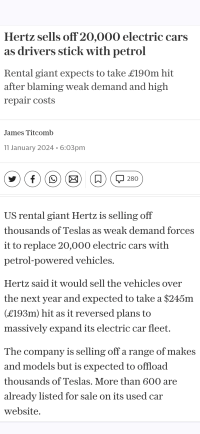Velma's Dad
Super Poster
VIP Member
One thing I believe irrespectively. Net Zero is the correct ideal. But like most ideals it is fundamentally flawed when it comes to execution & reality.
Net Zero would only be a "correct" ideal is if it's actually achievable within the 2050 timeframe, or at least roughly so. Otherwise, it's a hugely dangerous fantasy that deludes us with wishful thinking about our chances of keeping within the 1.5, or even the 2 degree warming scenarios.
My view FWIW is that in fact it isn't realistically achievable. Because, despite a conveyor belt of the "right" strategies committed to at successive COPs over 31 years since Rio in 1992 - switching to renewables, offsetting, carbon capture and storage - none have so far made anything like the progress required to track towards the Net Zero goal. Consequently, from where we are now, the annual decarbonisation rate in the 27 years remaining until 2050 is utterly unrealistic under any reasonable technological/socio-political scenario. I'm not blaming anyone for this, but it seems to me to be where we're at.
The most likely outlook at this point appears to be that net zero might only be reached late in the 21st century. Climate modelling has progressed (from when I first studied it as an environmental science student in 1980) into a very robust discipline and the central consensus of a 2.5 to 3 degree warming by 2100 seems to me entirely plausible, not simply a risk but a likelihood.
The world will be a very different place in so many ways in the late 21st century. Our children and theirs will mostly be fine, provided they can continue to sequester the lion's share of the wealth that the planet can generate, as we have done. Rich people are invariably able to cope with changes in their environment, or to move to somewhere safer/nicer.
For the less fortunate 80-90 percent of the world's population (which will by then have peaked at between 10 and 11 billion), they face decades of displacement and suffering, and in many cases, early death due to the profound climate impacts that are already starting to occur across the global South.
I'm not completely convinced that when Prof Kelly calls for a cost-benefit analysis of building some more windmills and doing some rewiring in Britain, he's planning on building those people into his calculus.
Last edited:















